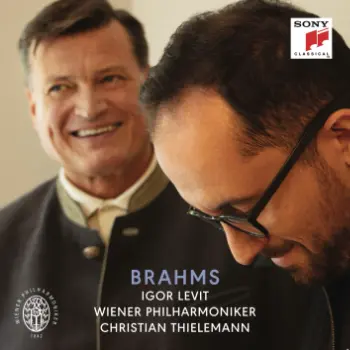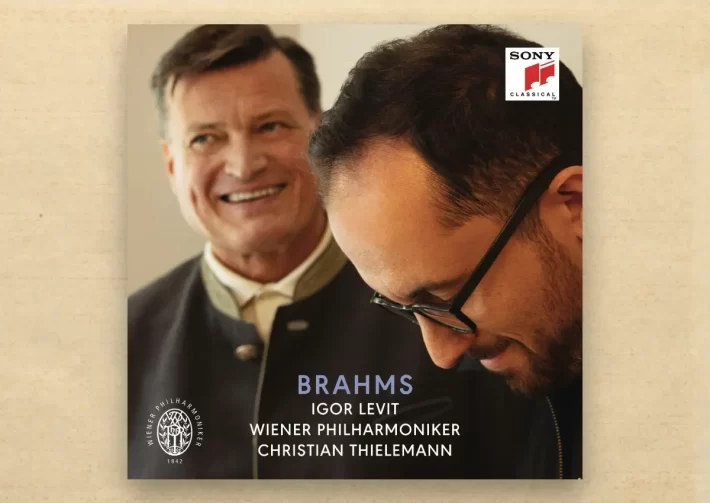The acoustics of Vienna’s Musikverein are regarded as among the finest in the world. Capturing an authentic recording in this venue requires exceptional skill, and many have achieved this successfully in the past, including Sony Classical, who release this new 3 CD set of Brahms two piano concertos and late solo works.

I felt obliged to start with the above statement, as the problematic recording sound kept interfering with judging and, honestly, wholeheartedly enjoying the concerto performances. Doubts start to creep in on the first piano concerto’s exposition, masking many of Brahms’ hidden contrapunct in what is an already problematic orchestration by the young composer. The dialogues with the piano often sound muffled, as some of the solo passages. Listen, for example, to the running octaves on 10’30” and compare it to other digital recordings by, say, Freire, Kovacevich (with Sawallisch) or Vogt.
Overcoming this engineering distraction, the performances are well characterized, and show remarkable pianism and natural understanding between Igor Levit and Christian Thielemann, who conducts the Vienna Philharmonic. There are moments of sheer delight, where the famed Vienna strings sing and Levit pushes forward in a driving momentum (first movement, 21’53”). Or in both concertos’ slow movements, when Levit is joined by spiritual, horizontal music-making of the highest order.
Levit’s pianism in a concerto sounds more projected and dramatic than in his solo recordings, and at his best, he produces a vast dynamic range, from a whispering pianissimo to roaring fortissimo. Technical challenges, especially in the difficult second piano concerto, are dispatched perfectly but never sound mechanical. With the help of Thielemann, he also likes to emphasize the dance qualities of Brahms’ final movements – listen for example to the second concert’s Allegro Grazioso, with a Polka-like interlude at 6’12”.
If the concertos׳ recording is something of a missed opportunity, the late solo works that fill the third CD are excellently produced in all aspects, and join the strongest digital performances of this repertoire – Perahia, Angelich, Grimaud and Lewis. On the Op. 116 set, Levit takes advantage of the excellent Steinway and shows, once again, how well this cycle works when played complete, pacing along the mood changes, from the dramatic opening to the reflected second Intermezzo, up to the devilish final Capriccio.
My slight reservation is that a few sections of the Op. 117 set sound a bit foursquare, as if following the bar-lines, yet one can’t be unimpressed by the expertly voiced chords and intricate pedal work. I also prefer my Op. 118 No. 4 less jumpy, but I appreciate Levit’s attempt to differentiate the middle section from the outer ones. The four piano pieces Op. 119 are a wonderful conclusion to a fine solo Brahms CD, which would have been worth the price of the set if sold alone.

Recommended Comparisons
Piano Concerto No. 1: Zimerman | Rubinstein | Curzon | Moog
Piano Concerto No. 2: Gilels | Hough | Ax | Freire
Solo Works, 116-119: Perahia | Angelich | Grimaud | Lewis
Brahms:
Piano Concerto No. 1, Op. 15
Piano Concerto No. 2, Op. 83
Fantasies, Op. 116
Three Intermezzi, Op. 117
Six Pieces for Piano, Op. 118
Four Pieces for Piano, Op. 119
Igor Levit – Piano
Vienna Philharmonic Orchestra
Christian Thielemann

Album Details |
|
|---|---|
| Album name | Brahms |
| Label | Sony Classical |
| Catalogue No. | 19658897652 |
| Amazon Music link | Stream here |
| Apple Music link | Stream here |

















